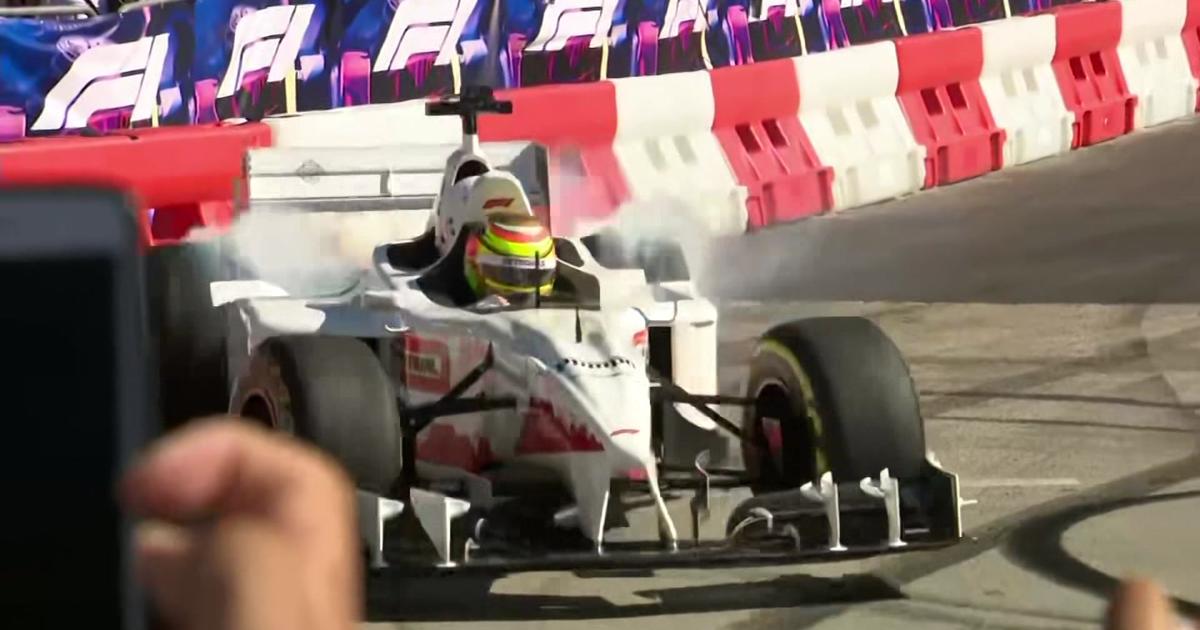Navy Technology May Help Women In Fight Against Breast Cancer
MIAMI (CBSMiami) -- Technology developed 15 years ago for the United States military may now help women in the fight against breast cancer and that's great news for Susan Gant.
"My husband's first wife died of breast cancer. My aunt on my mother's side died of breast cancer." Like many of us, breast cancer hits too close to home for Susan Gant who once had her own scare.
"I had multiple cysts."
But even so, like so many other women, she still neglected to keep up with her self-exams.
"I know how to do it. There's just something. A disconnect between my fingers and what I think my fingers should know versus my doctor and when he/she gives me a manual breast exam," explained Gant.
That's why most women don't do the home exams, according to Dr. Han Chiu, an adviser at Stanford University's Clinical Excellence Research Center.
"They don't know what they're looking for," Dr. Chiu said. "They might kind of remember. What you really wanna do is get comfortable with what does your breast feel like? What's changed? And if you do it too infrequently, you're not gonna be able to tell that."
But Ken Wright is hoping to change that.
"40,000 women dying of this a year and that isn't necessary!"
Fifteen years ago, Wright created a laser technology for the U.S. Navy that allowed systems to see objects even in incredibly murky water.
This technology led Wright to develop his latest invention — The Eclipse.
"You could actually take that same technology and look into tissue and look at rogue cells or diseased tissues," Wright said. "With your traditional home self-breast exam, you're feeling around for bumps, but with the eclipse what you're doing is actually seeing visually what's happening."
The Eclipse, which is handheld and radiation-free, is used in the same way a home breast exam is performed, except when you use it, as you would perform an examination at home, the device collects a number of images.
"Algorithms and our smart technology actually takes all those little images and puts it back together into a palatable image of each breast, and then each month you can see if there's change," Wright said.
The device also allows you to keep track of when you performed your exams, and gives you the ability to save the images onto your computer. You can also upload them into The Pink Cloud, which is a network of Eclipse users. From there, you can keep images private or share them with your doctor.
According to Dr. Chiu, most women don't perform exams because they don't know what to feel for.
The Eclipse is now moving into the commercial phase. The company is now looking for investment partners to help them offer free trials to a number of women.
While the Eclipse is not meant as a replacement of a mammogram, Wright says he is working on an alternative to the uncomfortable procedure at his invention lab in California.
It's larger technology that you could see in your doctor's office someday which is a non-invasive alternative to the often daunting, and sometimes painful mammogram.
"Very comfortable that you can lay down, (it) displays breast against chest wall instead of compression, and it's actually light looking down into it, and giving signal back, and telling you what you looked at," Wright said.
While Wright says his wife and daughter are the inspiration for his work, he hopes his inventions will help save lives through early detection.
"We're really trying to break some barriers here and get tools that allow women to have more empowerment," Wright said.
For more information on the Eclipse technology, including contact and pre-order, visit the website here.



